What Happens When You Die?
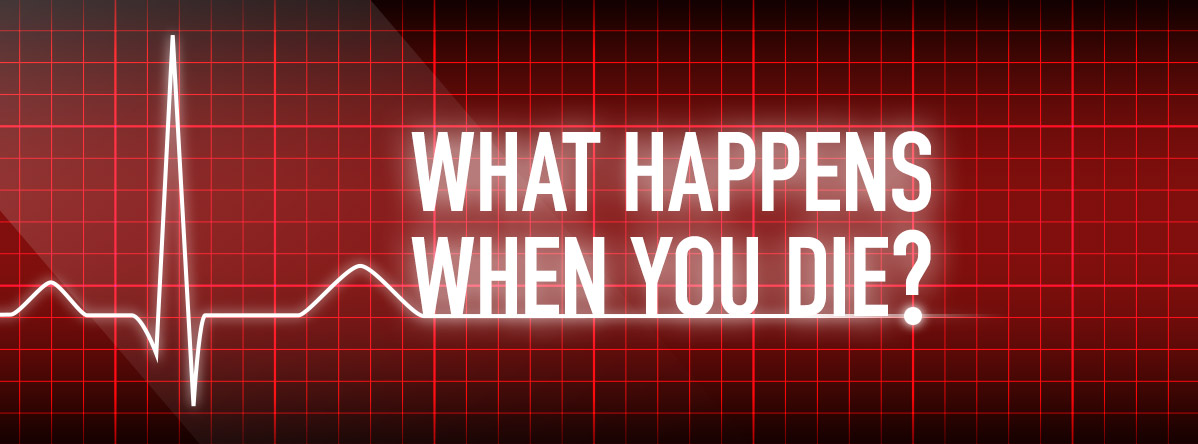
What happens when we die? Where do we go immediately after death? What happens to our mind, our spirit and our soul when we die? Do we fly up into an eternal heaven, or fall into an eternal hell? Do we reincarnate in this world as other people, or even animals, plants or rocks? Do we keep living the life we led over and over again? Do we simply disappear into nothingness?
Different teachings offer different answers to these questions. Science details how the body decomposes when we die. In general, the discussion around this topic falls into two main categories:
- People who have had near-death experiences and lived to describe what they saw and felt;
- Religious beliefs, philosophies and other theories offering concepts about the afterlife, reincarnation and consciousness.
This page is dedicated to investigating the question—”What happens when you die?”—from the perspective of the wisdom of Kabbalah, which offers a fundamentally different approach to the current discussion. We will look into Kabbalah’s take on:
- What is common to all near-death experiences and what we can learn from them?
- What is the soul? Do we have a soul, or do we get one when we die, or can we can attain one during our lifetime?
- What happens to our corporeal existence when we die?
…as well as other frequently asked questions about what happens when we die and life after death.
What Can We Learn from Near-Death Experiences?
People who have survived clinical death have reported a range of feelings, such as a sleep-like nothingness, a peaceful floating sensation in the sky or in a tranquil scenery like a garden, a bright light or a tunnel heading toward a bright light, seeing and speaking with loved ones who had passed away, as well as out-of-body experiences where they could see what was happening in the room where they were pronounced clinically dead.
What do all these sensations have in common?
They are all sensations of freedom from the corporeal body. In near-death experiences, the corporeal body is no longer a disturbance. People feel as if they belong to something other than what they identified as their body. The mind continues working and processing corporeal information, albeit differently.
Near-death experiences express a boundary between our corporeal life and its death. It is a boundary where we end our contact with information we received through our body, mind and corporeal senses.
In such states, our desire diminishes, and its disappearance equates to the person’s disappearance. In other words, the feeling of life we experience in our individual desires (food, sex, family) and social desires (money, honor, control, knowledge) fully vanishes and we agree with its withdrawal, ceasing to receive, feel, live and enjoy.
The sensation of freedom from the corporeal body marks a shift to a new state. This new state, however, is still not death, neither is it spirituality nor eternity.
According to Kabbalah, it is purely psychological. Whatever we feel in such states is limited and miniscule compared to the sensations of eternity and wholeness, which Kabbalah states we can attain a lot more vividly while we’re still alive in this world.
How? It is by attaining our soul.
What Is the Soul? Does It Belong to Our Body? Does the Body’s Death Mark the Soul’s Birth, or Can We Attain Our Soul While We’re Alive?
According to Kabbalah, the soul is not something we enter after our body’s death. Instead, it is something we need to attain a clear perception and sensation of while we’re alive. If we don’t attain our soul while we’re alive, then it’s considered that we don’t have one.
The soul is a desire above our egoistic, corporeal desires. That is, above our desires for food, sex, family, money, honor, control and knowledge, there is a small desire that asks about the meaning and purpose behind everything we experience: the meaning of life. This desire is a small point, called “the point in the heart” in Kabbalah, which we have an opportunity to develop. The full development of this point is considered the attainment of the soul.
Attaining the soul is like feeling an additional life to our current one, a life that was hidden from us. When we attain contact with the soul, it becomes the center of our life. We reevaluate our current life and start relating to it on a completely different level. Death of the physical body then becomes like changing one’s shirt. In other words, when our physical body dies, we continue reincarnating in a new body until the full extent of the soul is attained, called in Kabbalah, “125 degrees of spiritual attainment.”
If we don’t attain spirituality, then all that remains is a Reshimo (a “reminiscence” or “record”). It is a spiritual informational gene, similar to DNA. This Reshimo clothes in new bodies until it surfaces in us as the question, “What is the meaning of life?” This question eventually urges us to seek its answer: to find a method and an environment for the soul’s development.
What Happens to Our Corporeal Existence When We Die?
When we die, we lose awareness of everything we sensed in our corporeal lives. However, does it mean that we lose it all? No. It is being passed on in the form of personality attributes. This explains why, in every new generation, children are better adapted to life than adults. For example, children are instinctively proficient with the latest technologies and gadgets, while the older generation finds them more complicated.
In each successive generation, the will to receive undergoes an upgrade. If the will to receive fails to bring a person to spiritual development, then it shifts to a new stage, to another opportunity. All the problems, pains and knowledge gradually accumulate from one generation to the next, toward the need for spiritual development.
That is what the wisdom of Kabbalah was made for. Through the wisdom of Kabbalah, we can gain access to the eternal and whole system of the soul, discover its inner power, and become its active part, revealing spirituality as a clear perception and sensation, and this is the purpose of our development.
Today marks a very significant moment in humanity’s development toward this purpose, one which Kabbalists described as the time when humanity en masse would start awakening with questions about its meaning and purpose, and when Kabbalah would be revealed and open to everyone to allow us to realize this opportunity in our lifetime and gain eternal life.
New to Kabbalah?
If you’re interested in the wisdom of Kabbalah and everything it has to offer at a deeper level, we recommend starting with a beginner course in the fundamentals of Kabbalah. Course is available for self-study and as live video classes. Sign up for a course here »
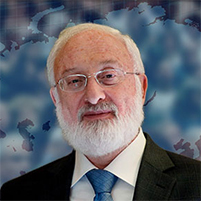
Dr. Michael Laitman
PhD in Philosophy and Kabbalah. MSc in Medical Bio-Cybernetics. Founder and president of Bnei Baruch Kabbalah Education & Research Institute.
Life after Death. Dr. Michael Laitman in an interview with Larry King.
YouTube.
 What Happens to the Soul After Death?
What Happens to the Soul After Death?
People who can perceive their soul live in it because of its disconnection with the body’s death.
People who have never attained their souls, have only a Reshimo (from the Hebrew word, “Roshem” [record]), which is a certain code similar to DNA including all attributes a person had ever consisted of.
When the body dies, this informational part (the Reshimo) must connect with a new body in this world and start all over. Every person has a Reshimo, the particle from which we eventually develop a soul.
Out of our corporeal, egoistic desires for food, sex, family, money, honor, control and knowledge, we have a small particle of information that works inside this corporeal desire that urges us to build a soul. In the wisdom of Kabbalah, this particle of information is called a “point in the heart.” It is characterized by the questions “What is the meaning of life?” “What do we live for?” Ultimately, it is a desire to perceive our soul and figure out the source of our existence.
The more intensely this point in the heart awakens in us, the more we address our egoistic desire and seek out means where we can realize this desire. Eventually, we come across the authentic wisdom of Kabbalah, which teaches a methodological approach on how to build a soul.
 What Will Happen to Me When I Die?
What Will Happen to Me When I Die?
If you attain the revelation of the soul—the smallest spiritual property, the smallest development of the soul from a point, its real existence—then when your body dies, you will continue perceiving your soul. This is because your soul will then have acquired volume and light (spiritual force of love and bestowal) inside it. It will then once again dress in another body, born by a woman, in order to attain all 125 steps of its development while existing in this body, since this can only be done while being physically present in our world.
However, if you don’t attain the revelation of the soul from the point, then you will once again appear in this world, just like you did this time, and you will have another opportunity (a point in the heart) to reveal and develop it.
 Why Do We Die?
Why Do We Die?
The body goes through renewal because its inner qualities are renewed. These qualities cannot go through the change while in the same body, since a particular body is always the most suitable for realizing a particular set of qualities.
 What Is Hell?
What Is Hell?
Hell depends on how a person defines it. There are those who suppose that Hell is when everything that they had in this world disappears and they regret that life passed by without any benefit.
There are those who suppose that Hell is not here in this world, from an emotional point of view: good or bad, with all kinds of observations. Rather, it waits for us in the future, after the body dies. They think that after the body dies, Heaven or Hell awaits.
In Kabbalah, Hell is the name given to the most undesirable spiritual state. Through progressing on the spiritual path using the method of Kabbalah, we strive to reach a state where values are changed so that Heaven and Hell acquire a different identity in comparison to what is conventionally accepted. Many people believe that when the body dies, some kind of door opens to Heaven or Hell. But is this wretched beast at fault for having died or because it was alive?
However, Kabbalah speaks about life or death in terms of the desire to receive in the situation when we have free choice. The illusion that I am in a physical body and feel this world is intentionally given so that I will leap above it and see myself as alive and existing only in a spiritual Kli (vessel) in relation to Light (spiritual force of love and bestowal).
It is perfectly fine, even beneficial, to imagine and see Hell differently all the time. When I am under the control of the desire to receive, which doesn’t let me bestow, this is called Hell.
 What Happens to Our Consciousness When We Die?
What Happens to Our Consciousness When We Die?
Nothing disappears in nature. It only changes its structure, design, just as our body decomposes into basic elements. It passes from one state to another. There is no such concept as “disappear.” Therefore, consciousness passes from one form to another, from one carrier to another—if it exists within us at all.
It can be stated that consciousness exists not in a person, but that it is around him, or maybe even in a completely different dimension, in another space. Our brain is kind of a modem that picks up the general consciousness to the extent that it needs to realize itself in the current moment.
Also, in terms of remembering your own self, your “I” exists in consciousness, not in the physical body. Consciousness per se is information. Informational connection exists beyond time and field. It permeates the entire universe.
Information does not disappear, it can only change its medium. We cannot say for certain in what form and where it exists.
The wisdom of Kabbalah teaches that nothing else exists. Our bodies and the whole corporeal world are only an illusion. This world is called “an illusory world” and is considered nonexistent. Everything else exists in the consciousness.
Further Reading on What Happens When You Die?
Posts in Dr. Michael Laitman’s Personal Blog
- What Happens To The Soul After Death?
- What Will Happen to the World if I Die?
- What Happens To A Person’s Soul When He Dies?
- What Remains After A Person Dies?
- What Happens When The Body Dies?
- What Dies And What Remains?
- Why Do We Die?
- Where Does The Soul Go After Death?
- Why Should We Resurrect The Dead?
- The Secret Of Life Discovered By Adam
- The Soul Is the Part of One’s Desire That’s Similar to the Creator
- How Do You Imagine Hell?
- Consciousness: Beyond Time And Space
- Can We Learn How To See The Future?

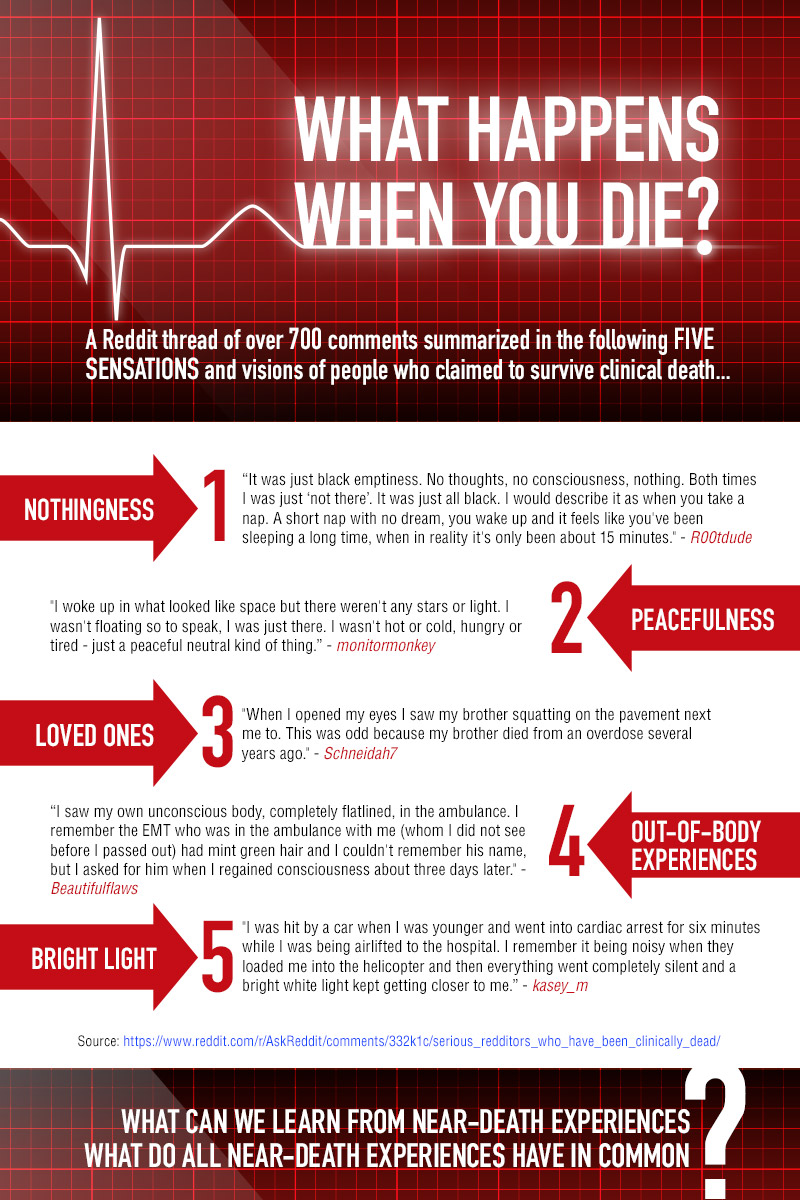
 What Happens to the Soul After Death?
What Happens to the Soul After Death? What Will Happen to Me When I Die?
What Will Happen to Me When I Die? Why Do We Die?
Why Do We Die? What Is Hell?
What Is Hell? What Happens to Our Consciousness When We Die?
What Happens to Our Consciousness When We Die?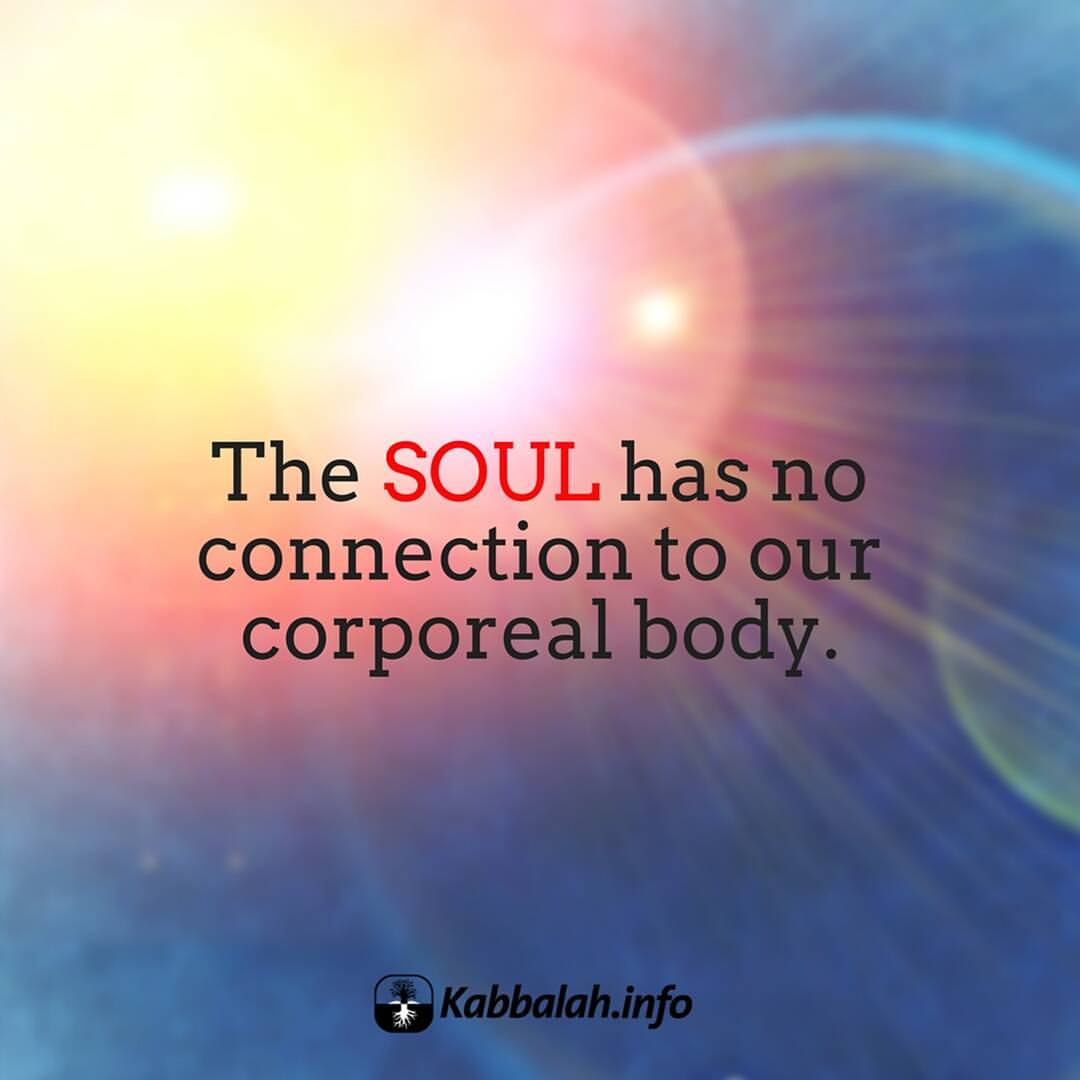

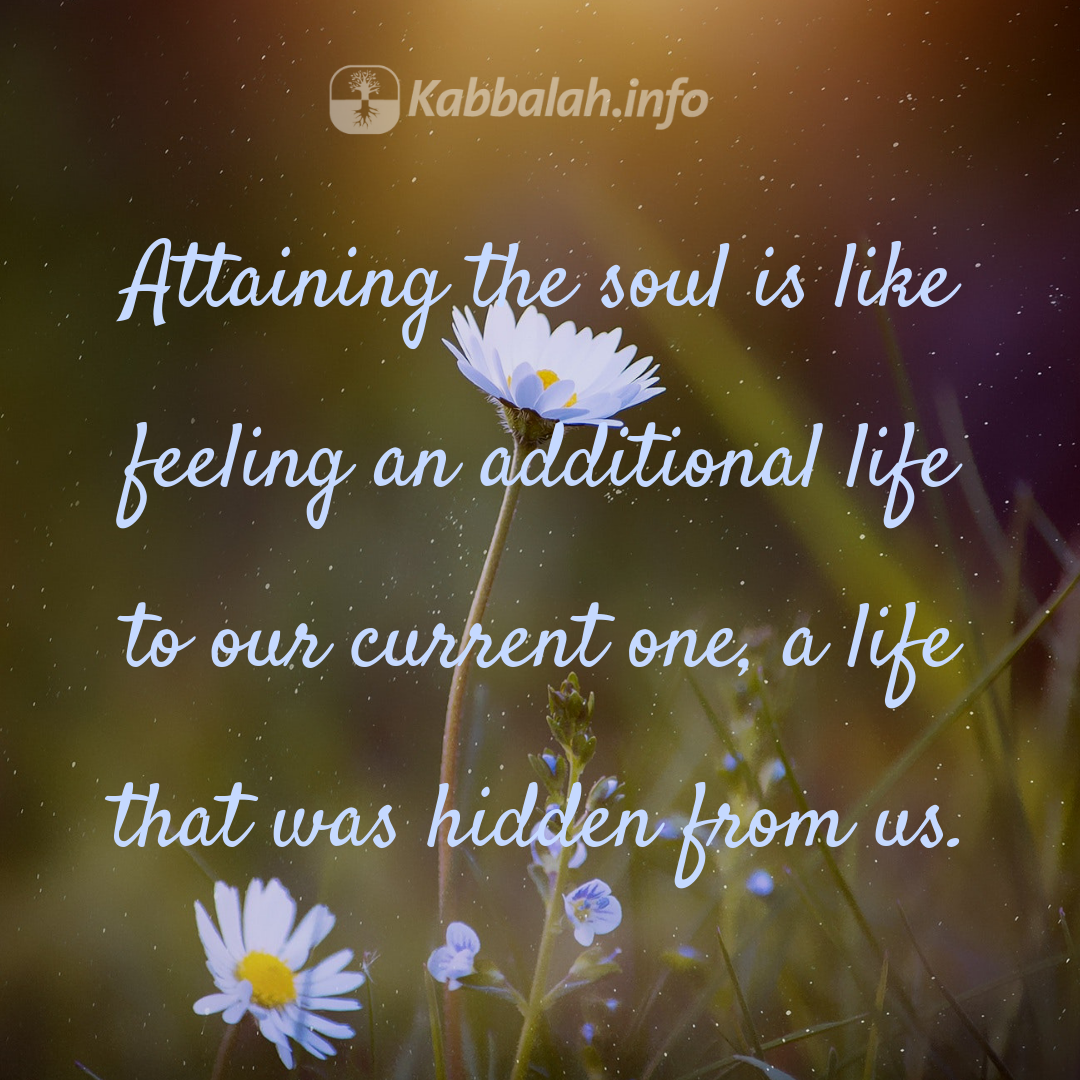
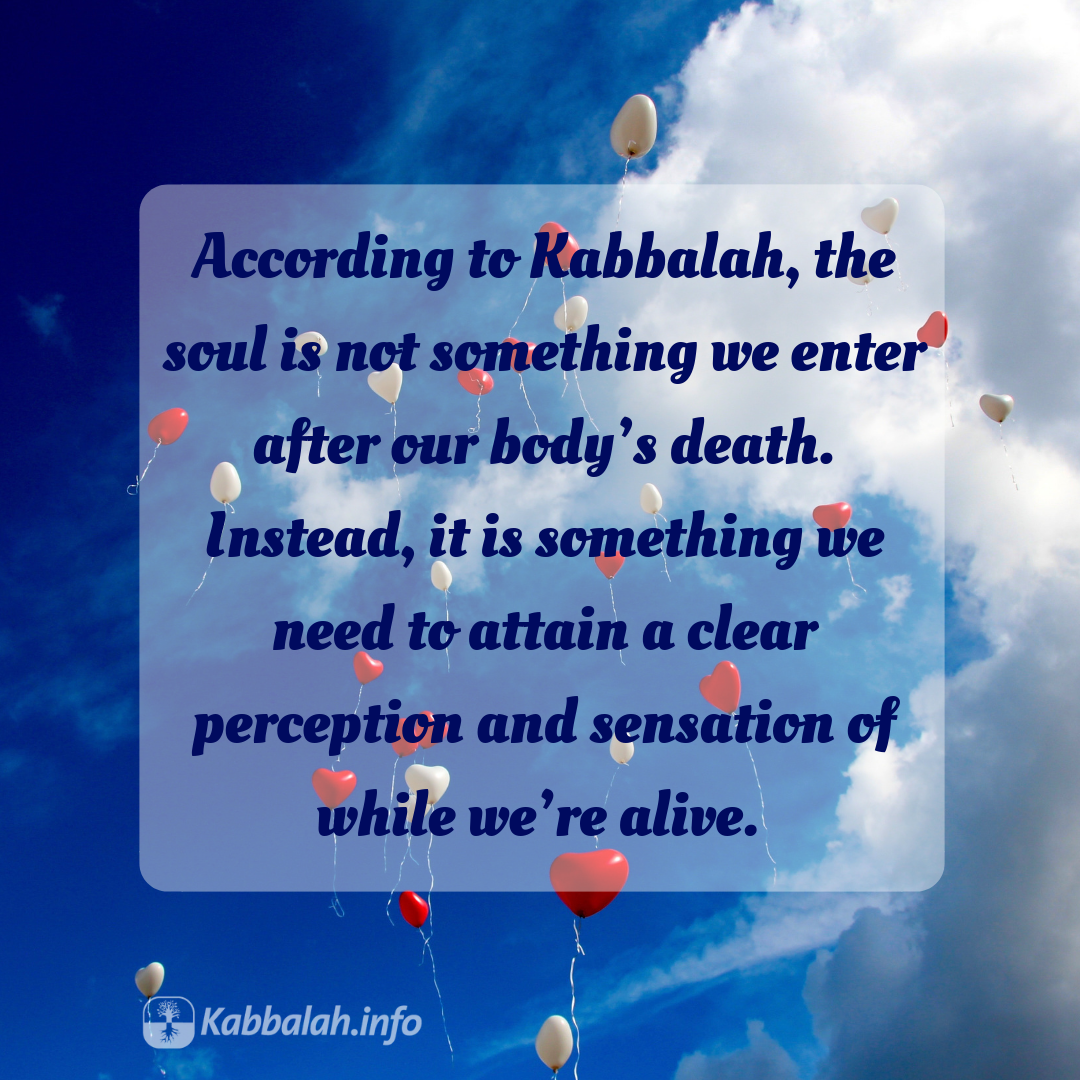
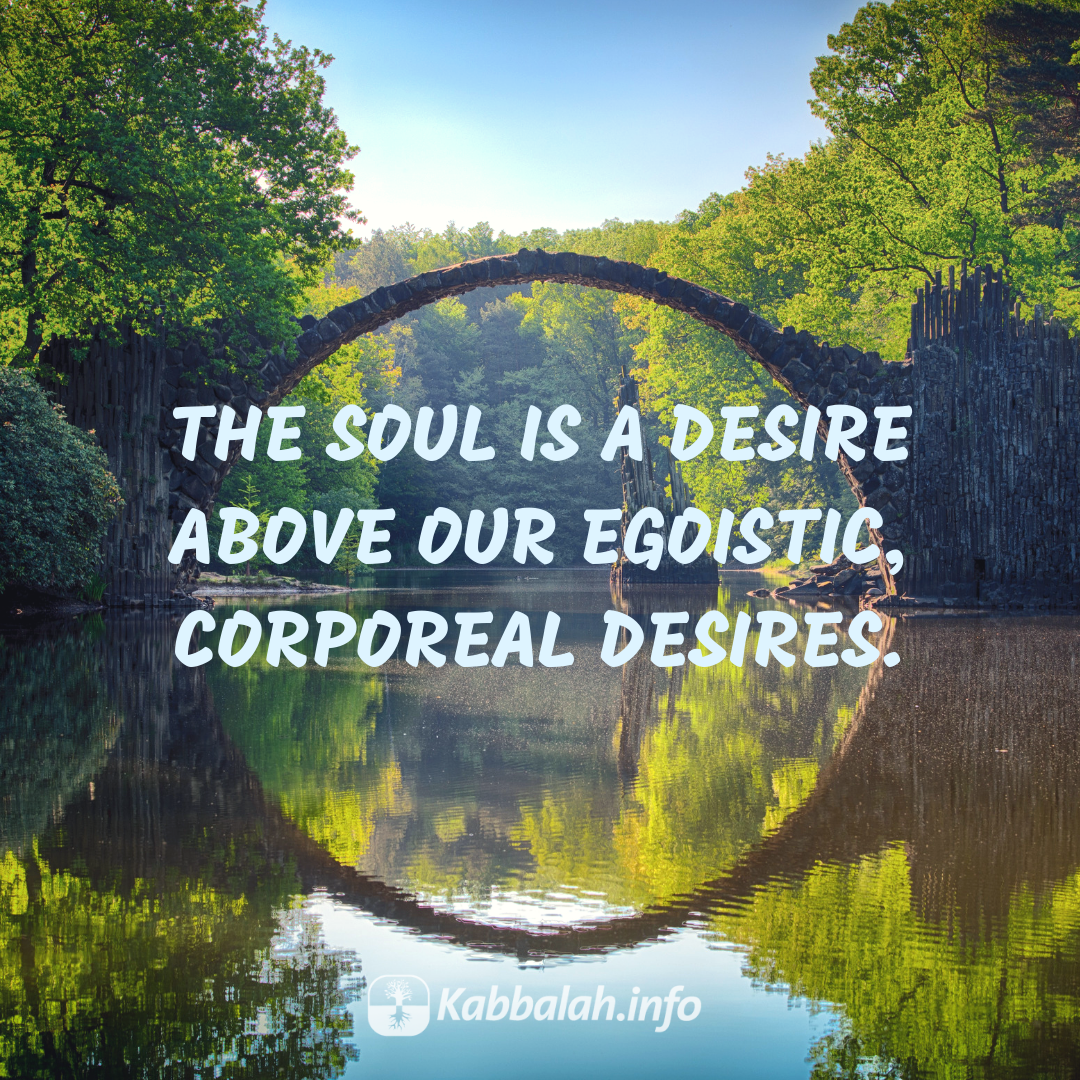

0 Comments